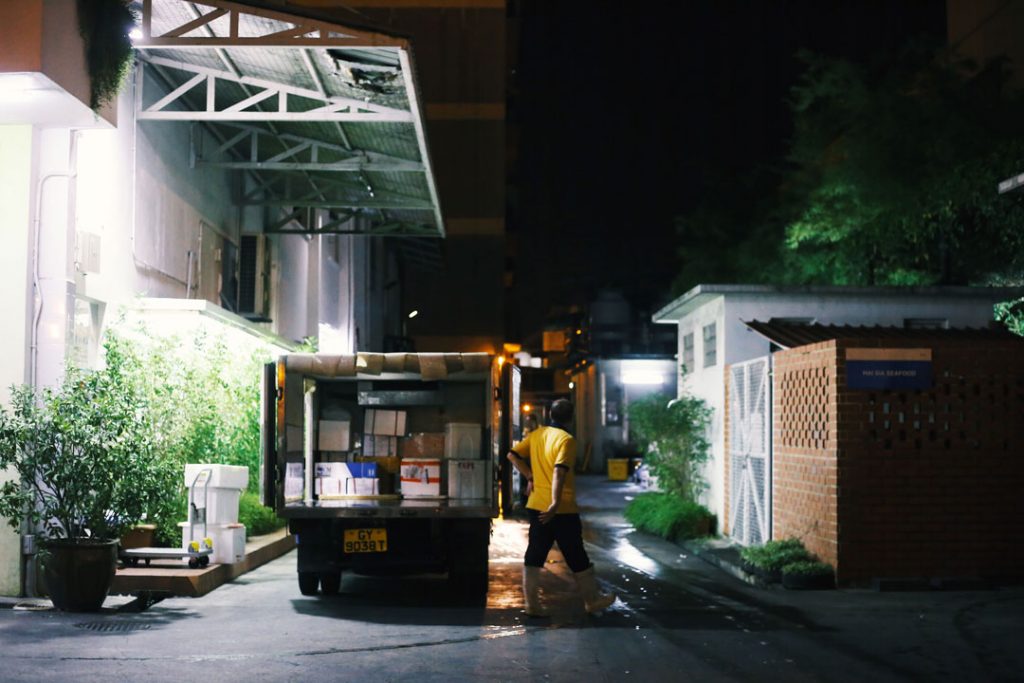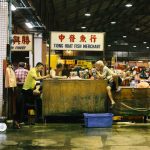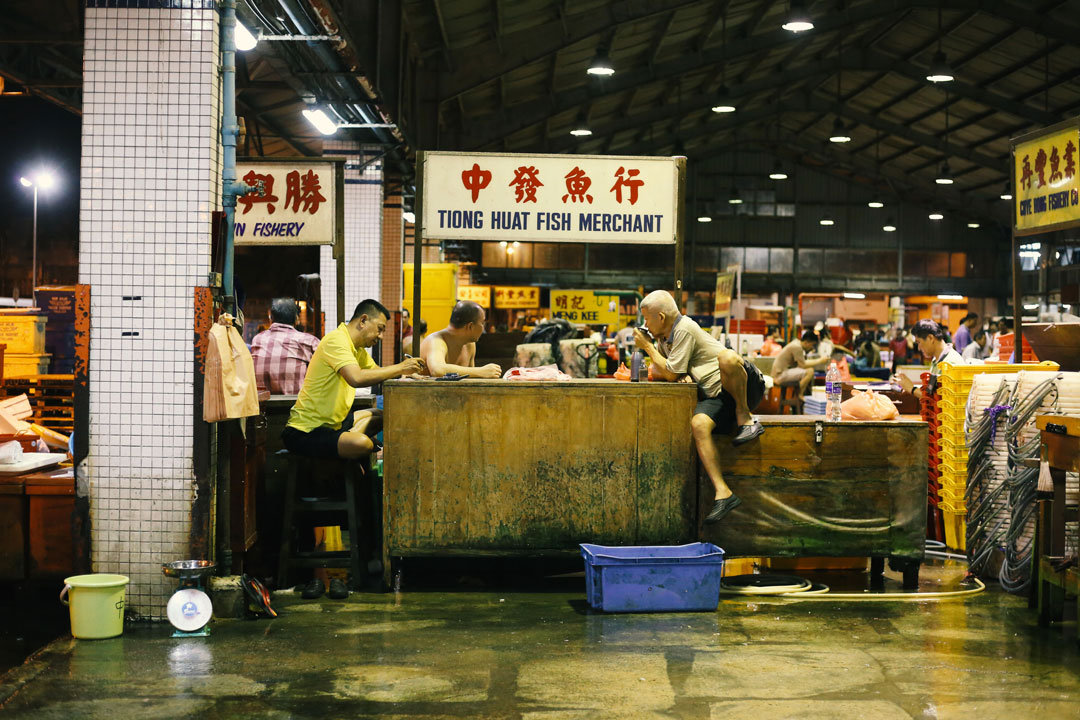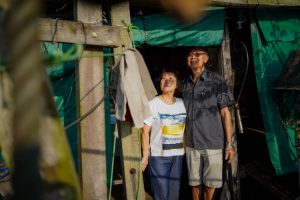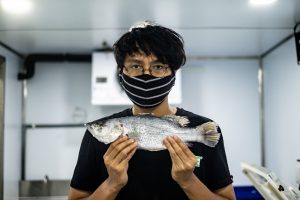A certain loneliness comes with working while everyone’s asleep. If you’re one of the fishmongers at Singapore’s Jurong Fishery Port, this is a burden your family shoulders too.
“You wake up in the middle of the night without a husband,” says one of their wives.
Yet even when the intoxicating pungency of fresh fish hits me before I pass the gates, I still don’t fully grasp what this means. How can I know what it means to be a fishmonger’s wife?
Instead, it is the intense sights and sounds within the compound that make me realise just how alone this job can make one feel.
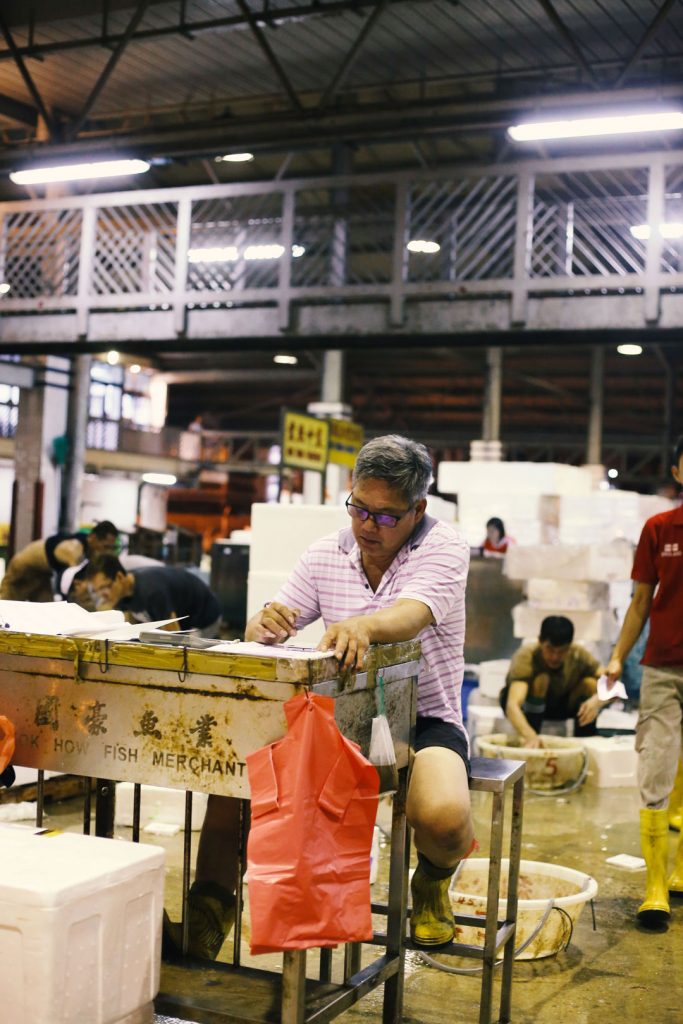

Taking turns to operate the forklifts, fishmongers move in a fluid clockwork motion.
There are shouts of “lai, jie guo, jie guo” (please move out of the way!), and plastic boots squelch against the wet floor.
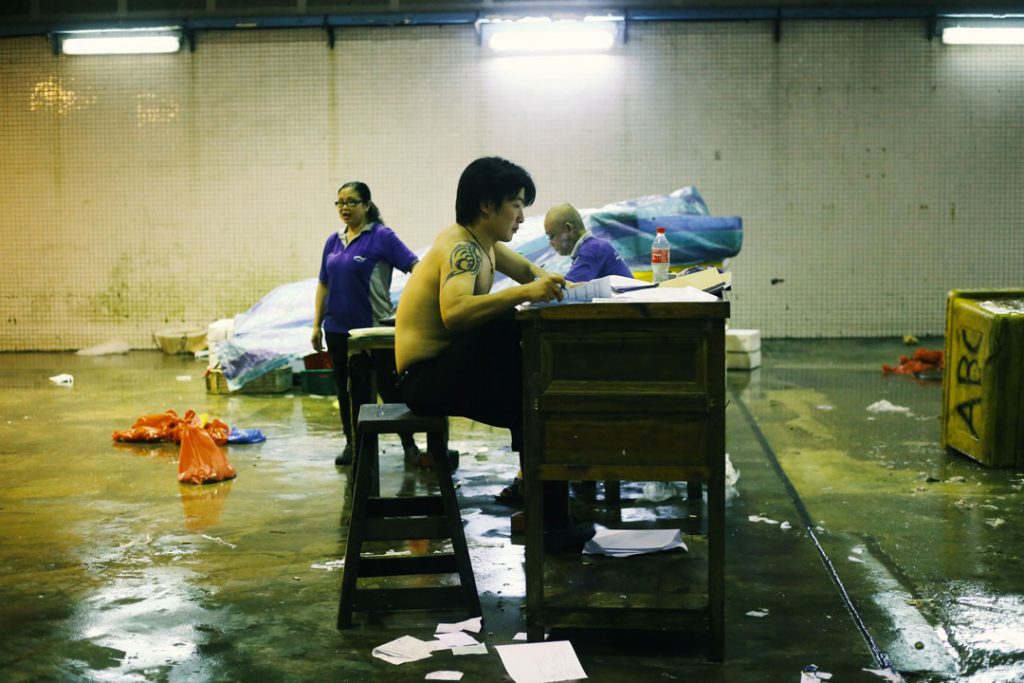
But while this is admirable to me, this is just another typical day for them.
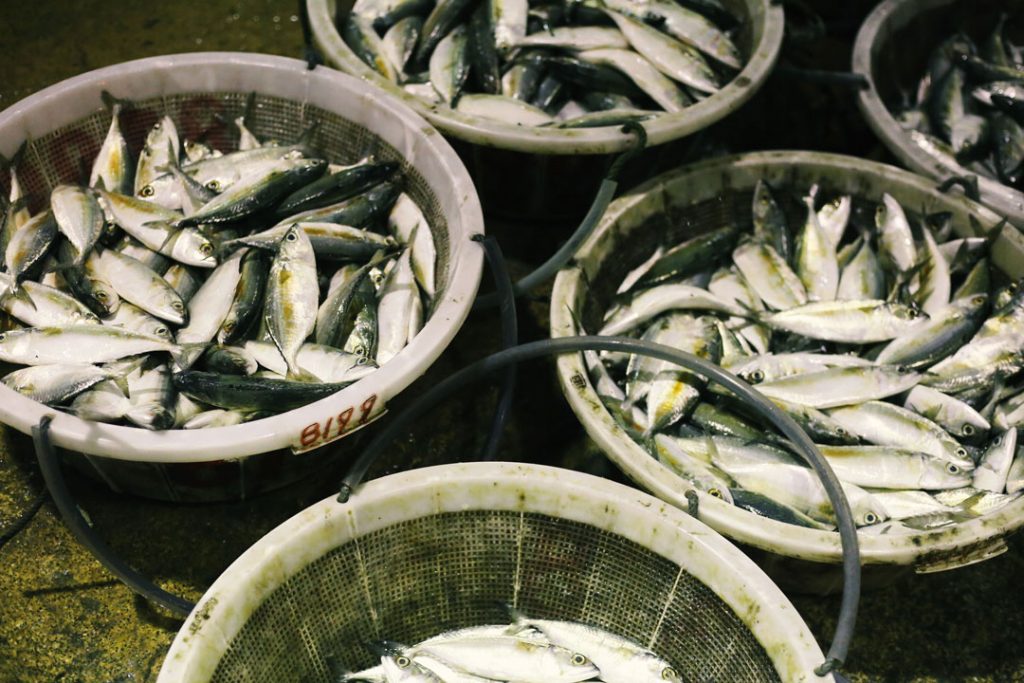
How many of my generation would take on a job that robs us of our social and family lives?
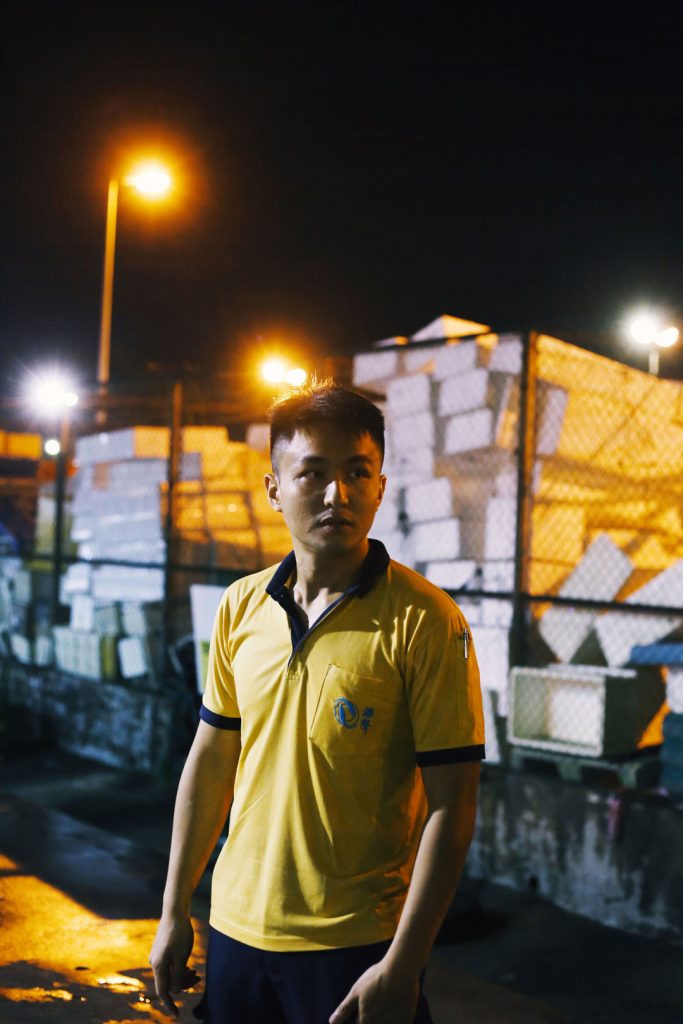
It’s more important that his fishmongers remain connected to the outside world.
After all, they are a hidden community that toils away in the night, rarely getting recognition for how much they contribute to the food that lands on our plates.
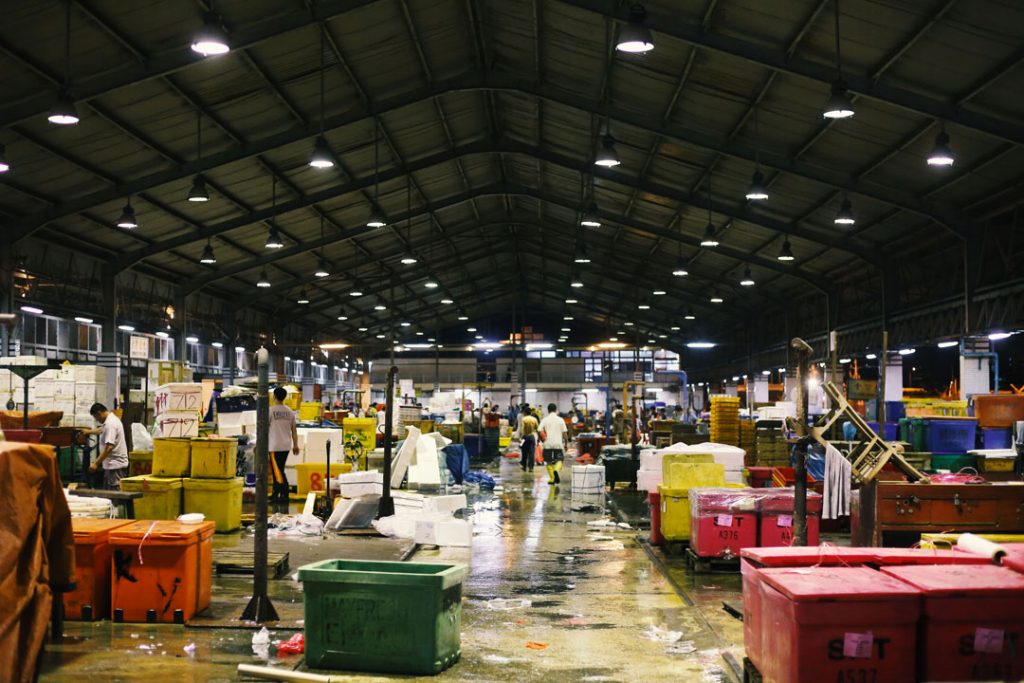
About 80% of them are Malaysian. The rest comprise mainly of Burmese and Chinese nationals. Singaporeans make up a small minority.
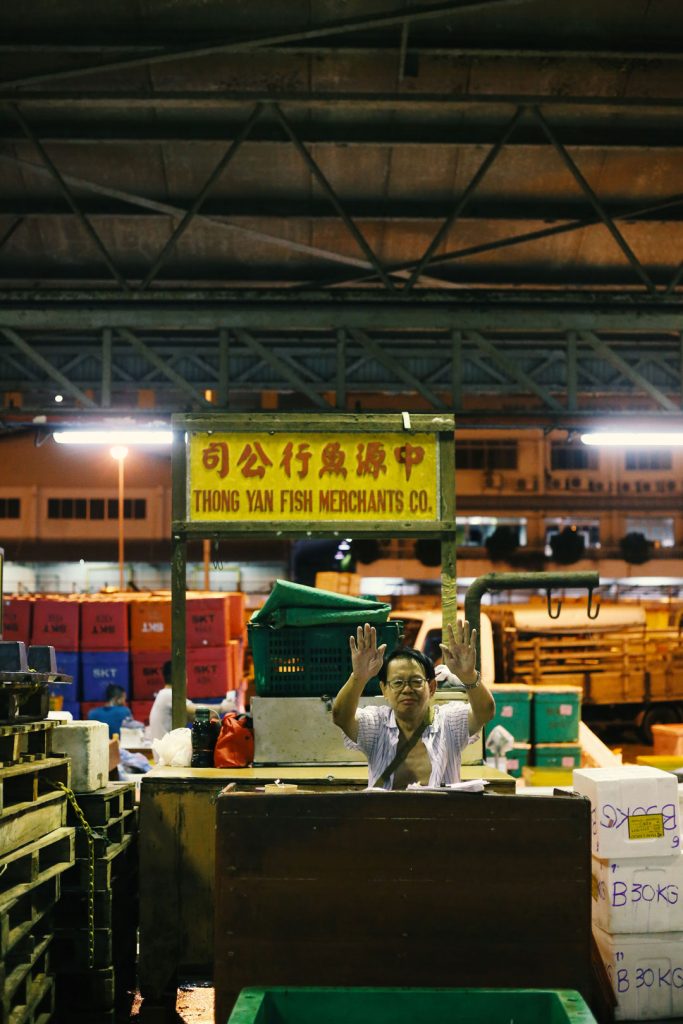
For them, their biggest goal everyday is to fetch a good price for their fish so they can feed their families. Observing this strenuous and unglamorous job, I wonder if they would scoff at my blind pursuit of passion.
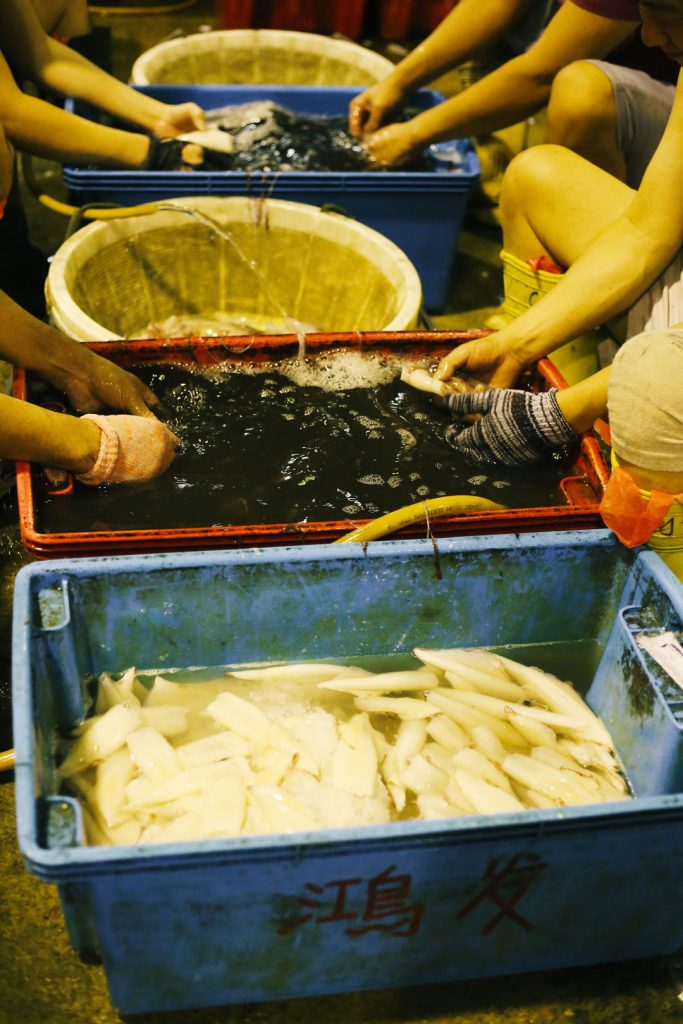
Once their shift begins, fishmongers lay out the catch of the day and await traders’ best offers. They only pack up once they’re satisfied with their earnings.
Sometimes this can be as late as 8am.
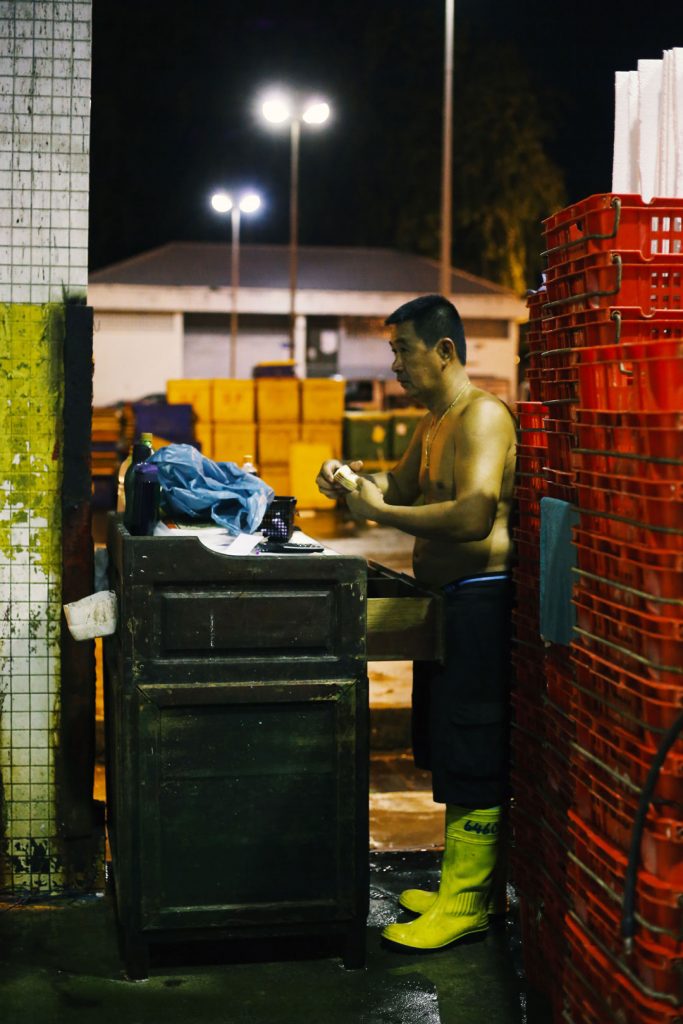
“No, no, no, definitely not!”
This isn’t even an option worth considering; theirs is not a life they want for their children.
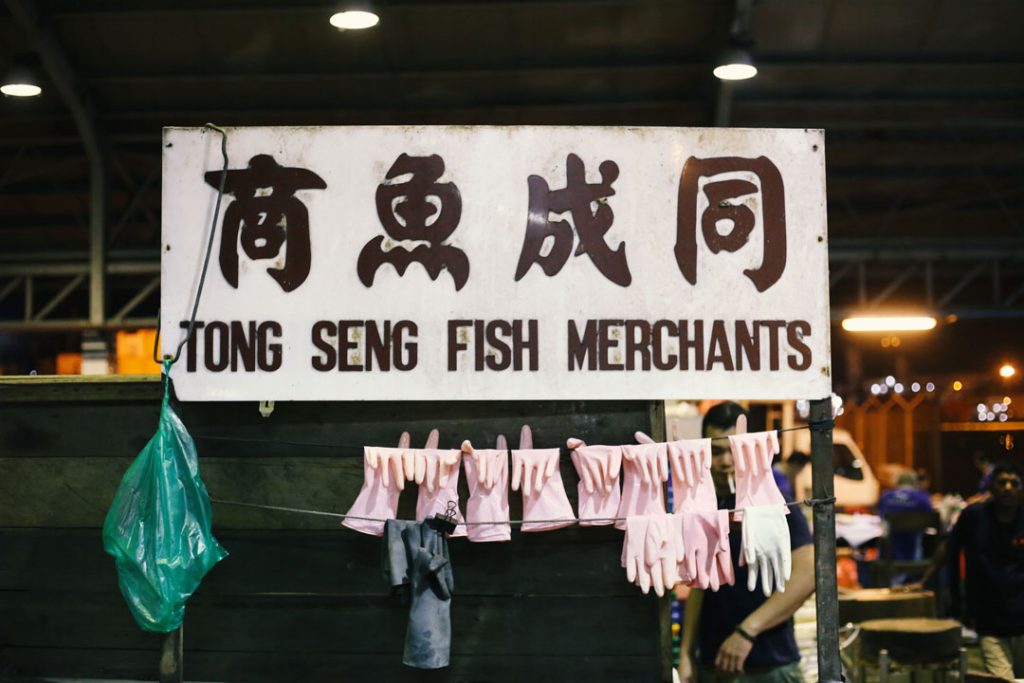
In fact, their elite education was paid for by the money their fathers made from the booming fishing trade back in the day.
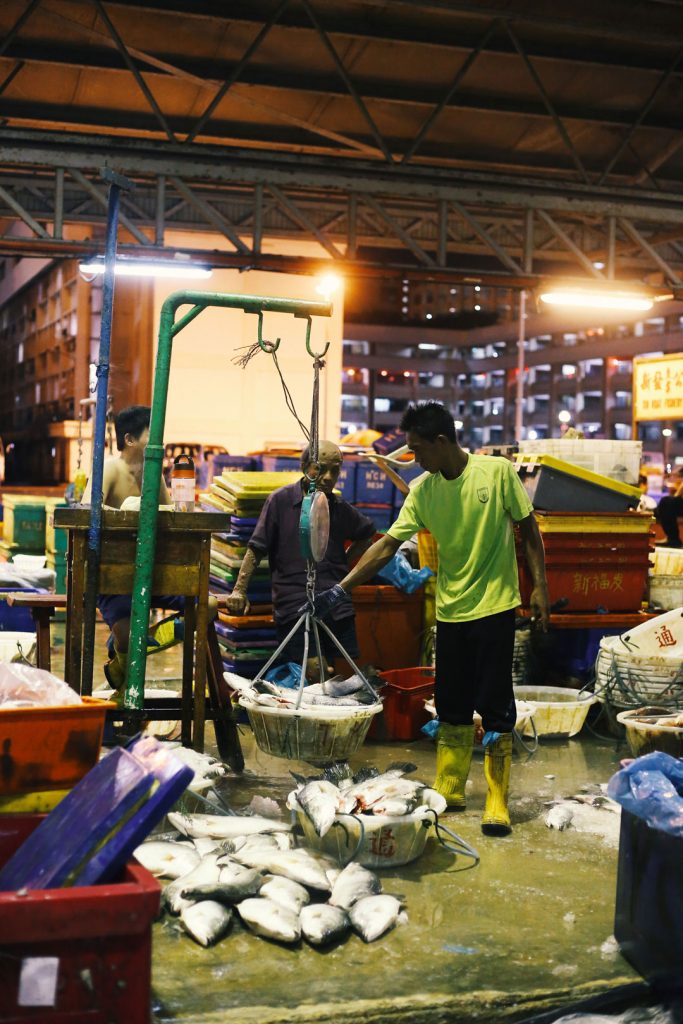
“The fishmongers are getting old and need to catch up with times. If they don’t get onboard with modern technology, their end is imminent.”
He also shares that the recent Ramadan month was rough on Hai Sia’s business—the majority of their fishermen are Malaysian and don’t work during this month.
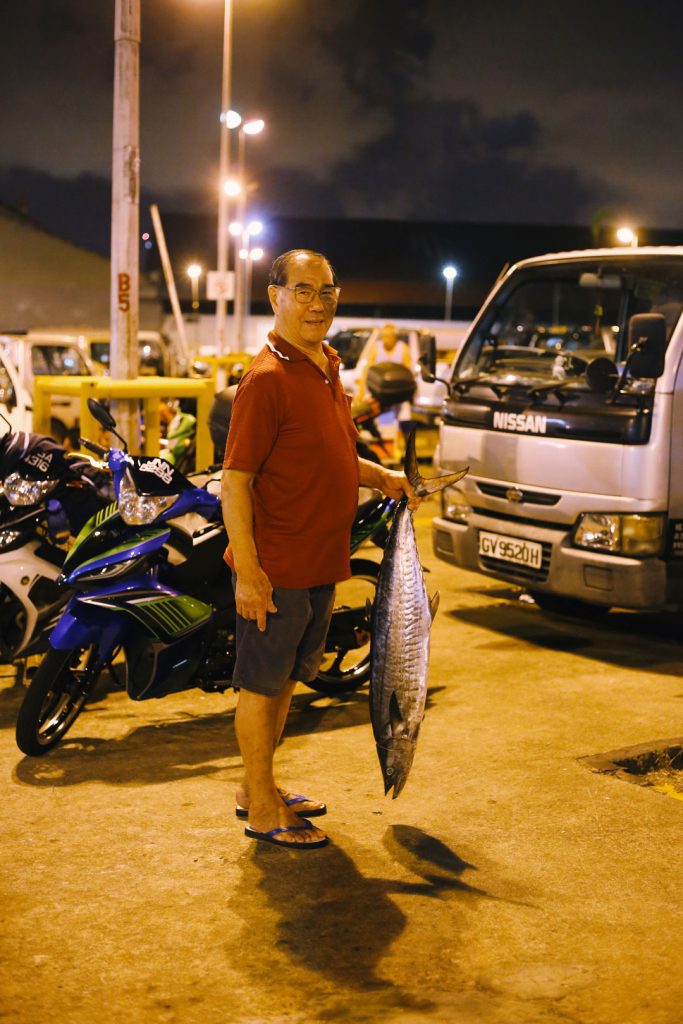
One such struggle is the industry’s obsession with sustainable food, which he thinks are merely marketing buzzwords.
“The irony is that most of these people who want sustainable food don’t even know how fish are caught.”
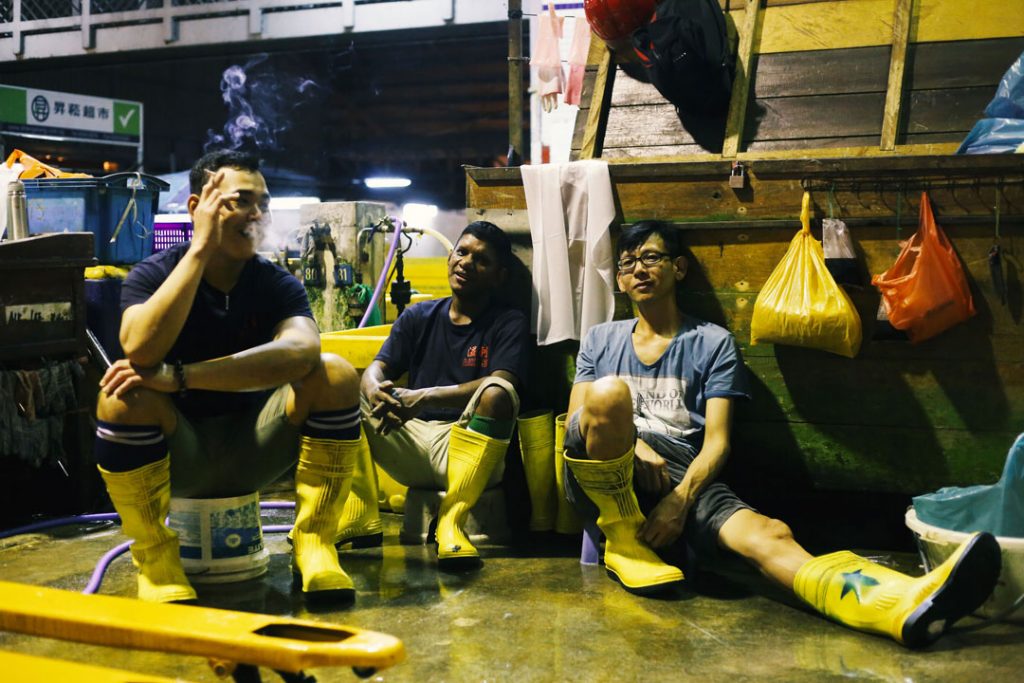
One thing is for sure, this is a job for the physically, mentally, and emotionally strong. These men only have each other to depend on. Watching them chat and tease each other with inside jokes, I observe a tight camaraderie and brotherhood.
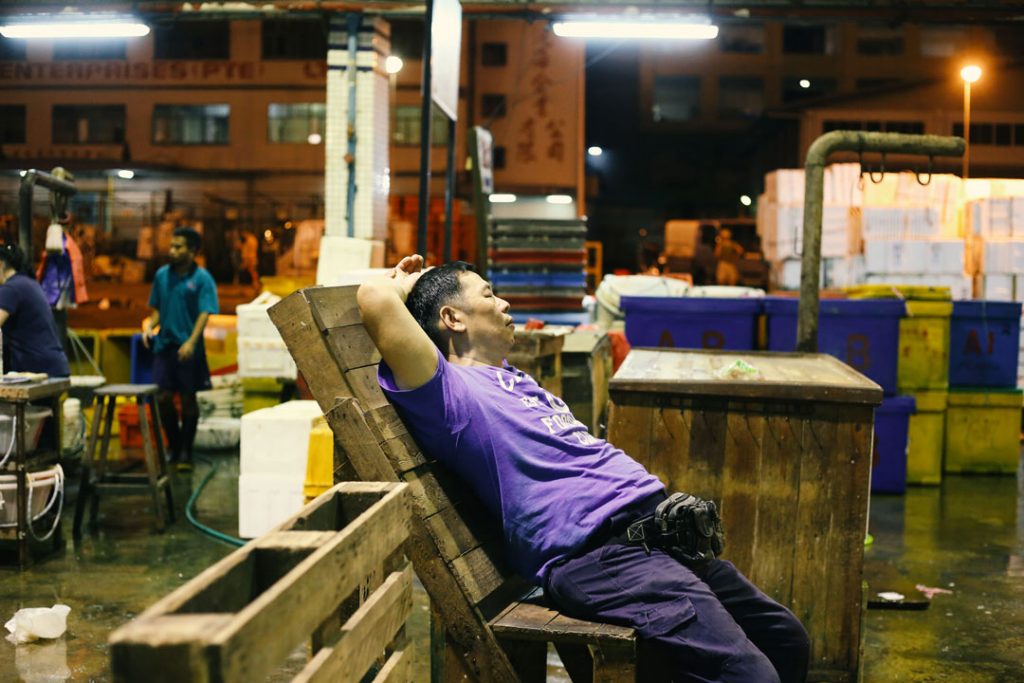
The start of a new day for most people is the end of one for these men.
